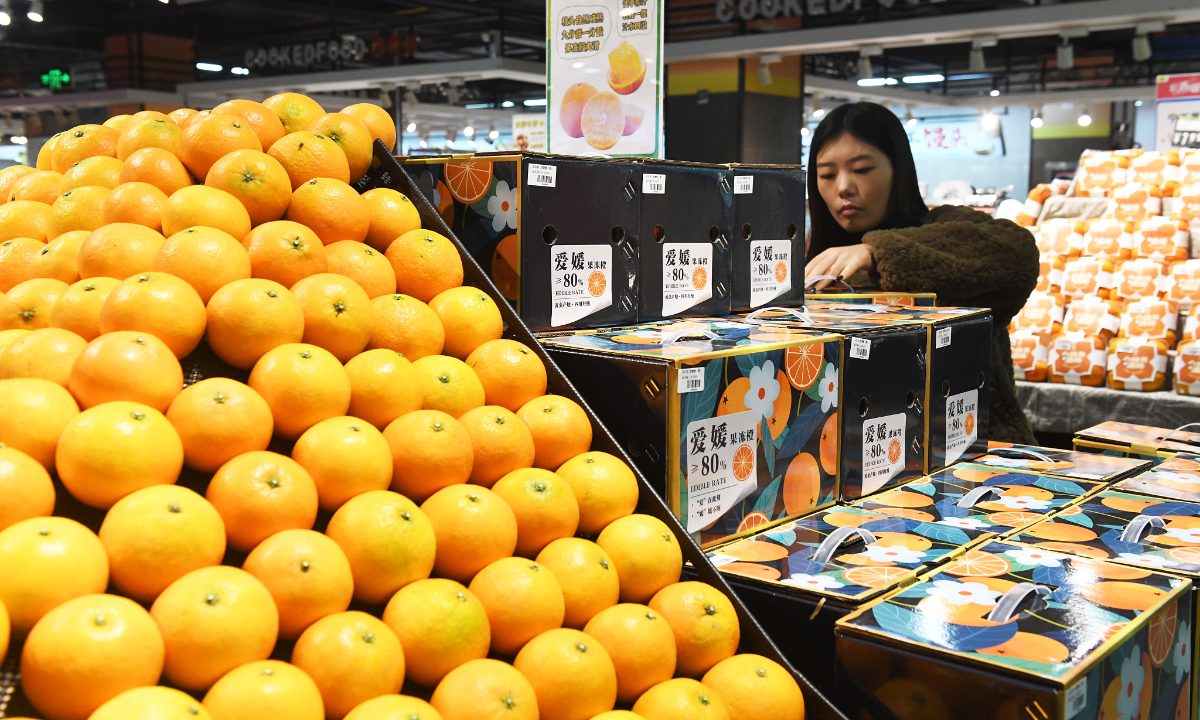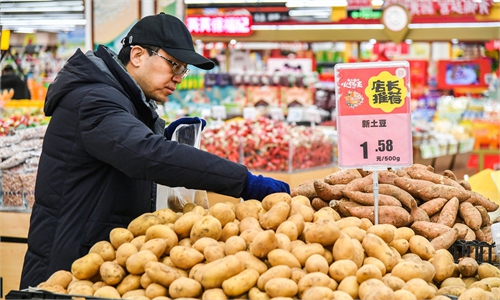China’s CPI grows 0.3% month-on-month in January on festive demand; PPI narrows decline

CPI Photo:VCG
China's consumer price saw a second month-on-month growth in January while the decline in the producer price further narrowed, data from the National Bureau of Statistics (NBS) revealed on Thursday, a trend which reflected the continued improvement in the supply-demand relations in the domestic market, experts said.
China's consumer price index (CPI), the main gauge of inflation, rose 0.3 percent in January, 0.2 percentage points higher from December, due to the festive demand for the Spring Festival, the NBS said.
With the approach of Spring Festival which falls on February 10, food prices rose 0.4 percent from the previous month, flight ticket prices edged up 12.1 percent and tourism prices increased by 4.2 percent, which are among the main drivers, according to NBS statistician Dong Lijuan on Thursday.
On yearly basis, the CPI dropped 0.8 percent mainly due to the high-base factors. Last year's Spring Festival fell in January, which pushed up the consumption base, Dong said.
"The consecutive month-on-month improvement in consumer prices in January reflects the ongoing improvement in domestic consumer prices," Zhou Maohua, a macroeconomist with China Everbright Bank told the Global Times on Thursday.
Also, due to the timing difference caused by the Spring Festival, coupled with domestic demand recovery, the CPI is expected to experience a significant year-on-year rebound in February, potentially initiating a moderate upward trajectory for consumer prices throughout the whole year, Zhou said.
The producer price index (PPI) narrowed its decline by 0.1 percentage points from the previous month, to fall 0.2 percent from December.
The index fell 2.5 percent year-on-year, which is a narrowing decline by 0.2 percentage points from the previous month, mainly due to fluctuations in international commodity prices and the production off-season for some domestic industries, Dong from the NBS said.
Zhou noted that the narrowing decline indicated an overall improvement in the operating conditions of the domestic industrial sector. He expects the domestic PPI to continue improving and grow between around 0.6 percent and 1.5 percent year-on-year in 2024.
Looking forward, Zhou said that China's relatively low commodity prices and low levels of government debt provide ample policy space to boost domestic spending.
China plans to implement a range of measures, such as stimulating purchases of vehicles and household appliances to boost consumption this year, Vice Minister of Commerce Sheng Qiuping told a press conference on Tuesday.
On top of that, China will spur new forms of consumption, such as cross-border e-commerce, new-energy vehicles and China-chic products, to unleash consumption potential, Sheng said.
Last year, China's new car sales exceeded 30 million units for the first time, up 12 percent year-on-year.

